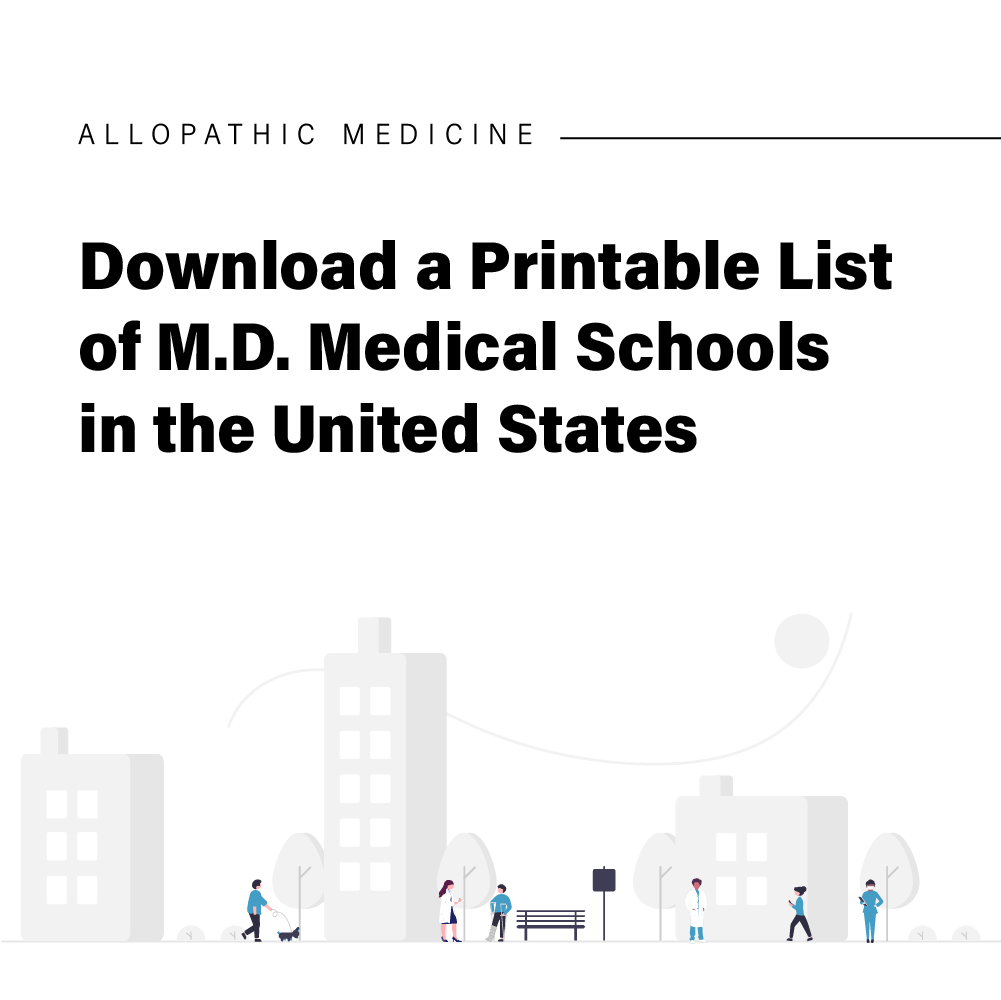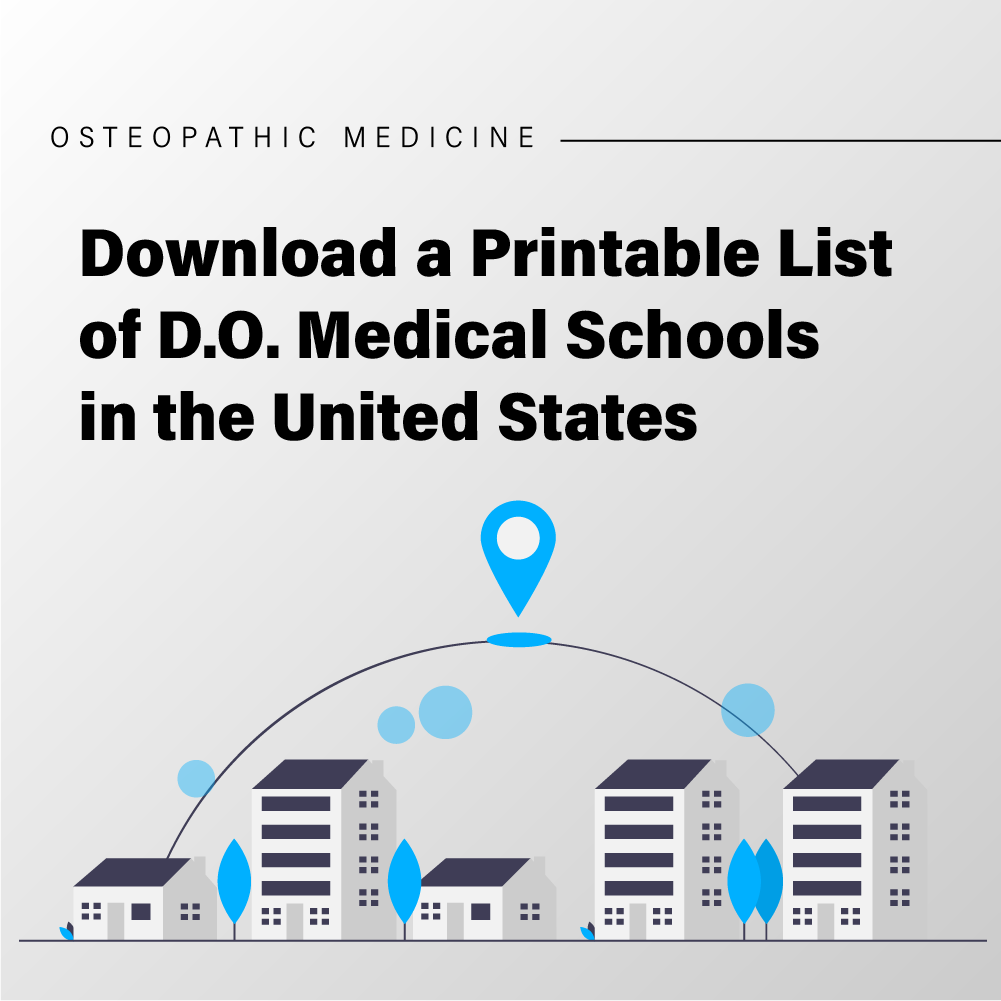Everyone asks the question: “What MCAT score do I need to get into medical school?” But, there isn’t a definitive answer. To be a competitive applicant into your school of interest, your MCAT score must be above the average percentile of admitted students. However, a lot of factors go into being accepted into medical school, and your MCAT score is just one piece of the application. Still, by understanding the admission requirements of different schools and doing some research on your own, you can get a good idea of how competitive your MCAT score is.
This article informs you which MCAT scores are considered average, and what score ranges will get you into your top school choices. However, keep in mind that each medical school has its own standards, and your score may vary depending on which one you apply to. So don’t stress out! Focus on studying hard and doing your best!
How is the MCAT scored?
The MCAT is just one more hurdle on your way to medical school. But before jumping that hurdle, it’s helpful to understand the scoring system of the MCAT. In this section, we’ll break down the scoring process. We’ll answer some other questions, too. Such as, how many sections are on the MCAT? Why are your individual scores and the total score important? What’s the highest possible score? And what are percentile ranks? Don’t worry, you’re covered!
The MCAT has four sections.
First, let’s take a look at how the MCAT is divided into sections. In total, the MCAT is broken up into four sections that are each scored on a scale from 118-132 points. Therefore, your total score can range from 472-528 points. These four test sections include:
- Biological and Biochemical Foundations of Living Systems (59 multiple choice questions)
- Chemical and Physical Foundations of Biological Systems (59 multiple choice questions)
- Psychological, Social, and Biological Foundations of Behavior (59 multiple choice questions)
- Critical Analysis and Reasoning Skills (53 multiple choice questions with passages)
The number of questions you answer correctly is what determines your score. However, wrong answers will be scored the same as if you didn’t answer the question at all. This means that if you’re unsure about an answer, do not leave it blank! Try using the process of elimination to narrow down your answer choices between two answers. This way, even if you guess, you will have a 50% chance of getting that point!
MCAT scores are scaled and equated. What does this mean?
Raw scores are counted first.
As we explained in the earlier section, your raw score is based solely on the number of questions you answer correctly. However, you will not receive nor report your raw score to medical schools. This is where things might get confusing. Although each MCAT test section is made up of roughly 60 questions, the lowest raw score you can get per section is 118 and the highest raw score is 132.
Then, raw scores are converted to MCAT scaled scores
The scores that will actually get sent to you are called scaled scores. The main difference between scaled and raw scores is that raw scores do not take into account the difficulty of the questions nor do they factor in the performance of other students that took the MCAT on that date. The main idea of scaling scores is to adjust for the difficulty of questions. For example, if you got to a point where your given questions are consistently difficult, missing a question or two won’t affect your score as harshly. Likewise, if you and other test takers have low raw scores on a test date where the MCAT questions were harder, you will earn more points through the scaling system. To learn more about how multiple-choice questions are scored and scaled, visit AAMC: How is the MCAT Exam Scored?
Scaled points from all four sections are summed up for your total score.
About one month after you take the MCAT exam, AAMC sends you five scores. Four scores will be reporting individual scores for the MCAT sections listed above. Summing up these four section scores will give you a total score. The ranges for total scores are:
- Lowest total score: 472 points
- Midpoint total score: 500 points
- Maximum total score: 528 points
You can consider a score of 500 to be the “top of the curve,” which puts you ahead of 50% of other premeds. Because you’ll only be scoring better than half the other applicants, an MCAT score of 500 will not be considered a competitive score.
What is the highest MCAT score?
The highest total MCAT score a student can get is 528. To get a 528, you must score 132 scaled points on every MCAT section (a perfect score). However, only 10% of test-takers will be scoring within the 514-528 point range–but don’t let this discourage you! Competitive scores can range from 508 to 528 depending on where you apply and there are still many other components that can boost your application.Kaplan provides a helpful breakdown of excellent, competitive, less competitive, and below-average scores. To check what scores fall under each category, visit Kaplan’s score distributions for the MCAT.
What are percentile ranks?
To gauge how your score compares to other MCAT test-takers, you will also receive an MCAT percentile. This percentile rank is actually a percentage of scores equal to or less your total points. For example, let’s say that your total score is 510 and your percentile rank is 84. This means that you performed better than 84% of other test-takers on the same day. You’ll receive a percentile rank for each section to evaluate your performance in every section, not just the MCAT as a whole. AAMC’s percentile rank updates every year using data from the last three year’s scores to adjust for yearly fluctuations. As mentioned earlier, the highest total score is 528. But in reality, you don’t need a perfect score to be a competitive applicant. According to AAMC’s current percentile ranks for 2021-2022, total scores for competitive ranks are:
- 75th percentile: 509
- 84th percentile: 512
- 90th percentile: 515
- 99th percentile: 523
- 100th percentile: 524-528
Your goal MCAT score will be highly influenced by your GPA.
Your MCAT score and GPA are the foundation of your medical school application. If you struggled with your premed classes and graduated with an average GPA, your MCAT score may reflect that struggle. According to AAMC’s GPA and MCAT score correlation grid from 2021-2022, MCAT test-takers with some of the highest MCAT scores also had the highest average GPA. Therefore, medical school admissions compare your MCAT score and GPA side by side to assess how well-prepared you are for medical school. Although an average GPA is not desirable, you can still make up for it! With careful preparation, hard work, and diligence, you can achieve an excellent MCAT score that will work in your favor during the application process.
However, medical schools evaluate other things, too.
Medical school admissions will evaluate your academic record to assess how prepared you are to be a successful medical student. But there are other things that make premeds successful doctors, too. More and more every year, medical schools are considering the applicant’s entire portfolio. Although academic preparedness is highly valued in the medical field, a premed’s journey to medicine tells a lot about their values, interests, experience, and their real-world strengths.
Other than MCAT score and GPA, medical schools also evaluate the following components:
- Letters of recommendation and support
- Extracurriculars directly related to medicine
- Extracurriculars outside of medicine, such as hobbies and leadership
As you conduct your research about getting into medical school, keep in mind that all of these listed components can play in your favor. Aside from your grades, admissions may want to determine how well-rounded you are. For example, your commitment to medicine and science will be assessed by the extracurriculars you engage in. Similarly, your unique qualities and interests will be reflected in extracurriculars you enjoy during your free time.
To account for your personality, character, and genuine interactions, medical schools will turn to your letters of recommendation. Written by professors or professional mentors, these letters give admissions gain a holistic picture of who you are from someone else’s point of view. Ideally, your letter writers are professionals who know you well and give you the highest support as a premed. To read more about letters of recommendation, check out our previous article on The Ultimate Guide to Med School Letters of Recommendation.
How you tell your story is also important.
Last but not least, your personal statement and secondary application essays are will also matter! If your GPA or MCAT score is not competitive, explaining any extenuating circumstances will be crucial. If that is the case, use your voice! Addressing any shortcomings in your application is better than no explanation at all. Your personal statement and essays should reveal your journey as a premed student. This includes how you became interested in medicine, what your goals are, and any hardships you have endured on your path to medical school. To learn more about telling your story, visit our previous articles How to Write About Hardship and The Ultimate Guide to Medical School Secondary Applications.
What were the average MCAT scores for accepted applicants in 2021-2022?
With over 150 medical schools in the U.S., it’s safe to consider that there is a range of competitive scores for different programs. To get an idea of what this range may be, let’s look at the national average MCAT scores for admitted students last year. According to AAMC’s Applicant and Matriculation Data, the average MCAT score for students accepted to MD programs last year was 511.9 ± 2.7. Per section, this average breaks down to:
- Biological and Biochemical Foundations of Living Systems: 126.7 ± 2.8
- Chemical and Physical Foundations of Biological Systems: 126.3 ± 2.8
- Psychological, Social, and Biological Foundations of Behavior: 127.3 ± 2.8
- Critical Analysis and Reasoning Skills: 125.7 ± 2.8
Curious about allopathic medicine? Well, according to the AACOMAS Matriculation Report, the average MCAT score for students accepted to DO programs in 2020 was 504.3. Per section, this average breaks down to:
- Biological and Biochemical Foundations of Living Systems: 126.3
- Chemical and Physical Foundations of Biological Systems: 125.9
- Psychological, Social, and Biological Foundations of Behavior: 126.9
- Critical Analysis and Reasoning Skills: 125.2
What MCAT score should you aim for?
There is no perfect target MCAT score. Fact is, you should strive to achieve the highest score possible. Not fixating on a specific number will encourage your study habits and make you work harder every time you take a practice test.
One reason to aim for the highest score you can get is to keep your options open.
For example, let’s say your school of interest has an average MCAT score of 510 for admitted students. If you fixate on scoring 510 or slightly above, you might begin to feel comfortable when you score 510 on your MCAT practice tests. This is a huge mistake that premeds make. For one, fixating on one score might narrow your chances of reconsidering other medical schools later on in the application cycle. What if you visit another school and fall in love with it? How will your options change if you can’t relocate to another city or state? What if you find another school that suits your interests better?
Lastly, fixating on one MCAT score doesn’t actually guarantee that you will achieve it.
It is very common for premeds to receive one score on MCAT practice tests and a completely different score on the actual test day. In fact, it is very common for MCAT prep material to be either easier or much harder than the actual MCAT test. Therefore, aiming to score in a highly competitive range will help you prepare better. For example, instead of aiming for a total score of 510, aim to score 125-128 on each MCAT section or a total score range of 510-515.
You’re going to see different recommended scores online. Remember–focus on the highest score possible!
Another reason to aim for the highest possible score is that premeds very often read confusing information online. For example, a report for U.S. News rankings of Best Medical Schools for Research reported that the median MCAT score for admitted students was 515 or higher. However, top schools have a large number of applicants and very high admission requirements. As such, this number doesn’t accurately reflect your chances of getting into other good programs. When it comes to percentiles, Magoosh recommends scoring at least in the 50th percentile but other sources say this is too low. The Princeton Review, for example, recommends scoring in the 80th percentile or above. This means you should aim to get a score of 509 or above.
To know where you stand, check the average accepted MCAT score at your schools of interest.
If you’ve received your MCAT test scores already, there are many online resources that can help you check how competitive your score is. The first resource you should check is the admissions page for your schools of interest directly. If you have many schools you’d like to check, you can also use AAMC’s website for MSAR. Here, AAMC lists the average scores for MSAR, or Medical School Admission Requirements of all the medical schools in the U.S.
In conclusion,
So, what does all of this mean for you? It means that there is no one-size-fits-all answer to the question of how competitive your application will be. However, if you focus on doing your best in school and on the MCAT, you’ll put yourself in a good position. Aim for the highest score you can achieve. To remain competitive for this coming admission cycle, remember that last year’s average MCAT score for admitted students was 512. Nonetheless, it’s important to do your research into each school’s specific admissions requirements so that you can tailor your application accordingly. We hope that this article has been helpful and wish you the best of luck as you work towards medical school!
More AAMC Resources:
- About the MCAT Exam
- Percentile Ranks for the MCAT Exam
- Current Percentile Ranks for the MCAT Exam 2021-2022
- Medical School Admissions Requirements (MSAR)
- 2021 Facts – Applicants and Matriculants Data
Further Reading:



